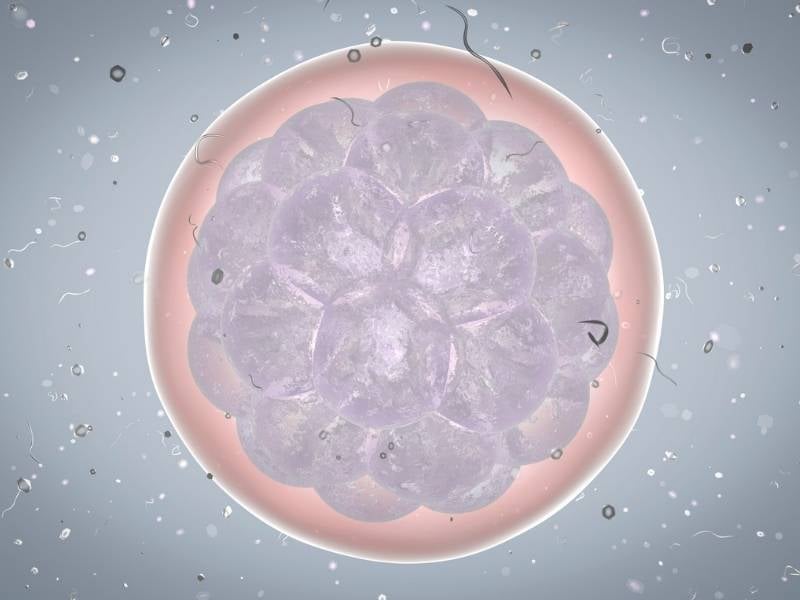Ready for your first prenatal visit?
Transitioning from your infertility team to your Obstetrician/Gynecologist is not always an easy step to make.
You may have gotten used to your weekly visits with your Reproductive Endocrinologist and speaking to your nurse regularly. The consistent connection with your infertility team has been reassuring to you and you might have even begun to enjoy your weekly ultrasound trips.
But rest assured there is a time when you and your infertility team will part ways. It’s an exciting transition but it can leave you feeling distressed and scared.
When a patient conceives through IVF, early diagnosis and appropriate assessment and management of the pregnancy is very important.
However, as time goes on and your pregnancy becomes more advanced, frequent monitoring visits are no longer needed. This is good news! It means your pregnancy is proceeding as it should.
When to Schedule Your First Prenatal Visit?
Most patients’ transition to their obstetrician takes place around 7-9 weeks gestation. At that time the pregnancy risk level is almost equivalent to that of a woman who conceived naturally.
Here are some helpful tips to help you transition from your infertility team to the care of your Ob/Gyn.
Your First Prenatal Visit (or Second)? What Happens?
Once you are pregnant and a fetal heart tone has been detected, it is a good idea to set up your first Ob/Gyn appointment. Before going to your Ob/Gyn, make sure you obtain a copy of all your medical records and your laboratory results. It is always a good idea to keep a copy of your own medical records.
Obstetricians will typically ask the date of your last menstrual period (LMP). The best way to calculate your EDD is to consider the time of egg retrieval to be when you ovulated.
A typical parental visit schedule for patients who conceived naturally or through IVF is the same. If you have been advised to seek the care of a Maternal-Fetal Medicine physician for classified high-risk care due to specific factors or chronic conditions, a different care schedule may be in place. As I mentioned, pregnancy risk level at this point in pregnancy is almost equivalent. This is a good thing!
Pregnancy Doctor Visits: A Basic Timeline
A typical prenatal visit schedule may look like
- Prenatal visit every 4 weeks until 28 weeks gestation
- Prenatal visit every 2-3 weeks until 36 weeks gestation
- Prenatal visit every week until delivery
How to Have a Healthy Pregnancy
Nutrition: Healthy Snacks & Vitamins
After your first prenatal visit, the best advice is to simply eat a well-balanced diet, supplemented with prenatal vitamins prescribed by your physician.
The old adage that you are “eating for two” can be misleading. Your caloric intake should only increase on average by 300 calories per day. So not only should you pay attention to what you’re eating, but also how much you are eating.
Substances to Avoid
When it comes to substances such as alcohol, tobacco, or illicit drug use, just say no.
These substances are harmful to a developing fetus. It’s also not a bad idea to say no to fish containing high levels of mercury, unpasteurized milk, soft cheeses, deli meats, and caffeine. Mindful eating is a good rule of thumb since we know that most nutrients or toxins pass through the placenta wind up going into your growing baby.
Medication for Pregnancy
If you regularly take prescription medications, check with your doctor to determine if it is safe to continue with it during pregnancy. It is important to note that you should avoid taking aspirin and NSAID pain relievers such as ibuprofen. Many Ob/Gyn’s will provide you with a list of safe medications at your initial visit, but don’t hesitate to ask before taking any medication.
Working Out While Pregnant
If you are someone who is physically fit and exercised regularly prior to conceiving, you may be able to tolerate the same level of exercise during pregnancy, with some minor modifications. Prenatal yoga is considered to be safe and can have many benefits for pregnant women and their babies.
If you are someone who never exercises, this is not the time for you to begin. Before starting any exercise program consult your doctor.
FAQ
Is sex safe during pregnancy?
Not all pregnancies are the same, sex during pregnancy is absolutely a topic that should be broached with your physician or midwife.
Many professionals will encourage an expecting couple to have sex. However if your pregnancy is considered high risk, particularly if you are experiencing vaginal bleeding or cramping, this may not be the case. On the bright side, this may be the first time in a while that you and your partner can engage in sexual activity strictly for pleasure without the pressures of trying to conceive!
What percentage of pregnancy ends in miscarriage?
Miscarriage is defined as the loss of a pregnancy at less than 20 weeks and occurs in approximately 15-20% of all pregnancies, as recorded by hospital episode statistics. A community-based assessment may be up to 30% as many early pregnancies remain unreported to hospitals.
There is an increase in pregnancy loss rate with advanced maternal age. Most of these early losses are due to abnormal chromosomes of the embryo. The great majority of miscarriages occur early, before 12 weeks gestational age and fewer than 5% occur after the identification of fetal heart activity.
How much bleeding is normal in early pregnancy?
First things first, do not panic! Bleeding is not always associated with miscarriage.
Secondly, you should assess the amount of bleeding you are experiencing. Spotting can be very common and in is not a sign of impending pregnancy loss.
During pregnancy, there is an increase in blood flow to the cervix and vaginal area which can sometimes lead to spotting. Third, notify your Ob/Gyn. Depending on the amount of bleeding they will instruct you accordingly. The most important thing to remember is that there is nothing you can do or could undo that causes bleeding during pregnancy.




